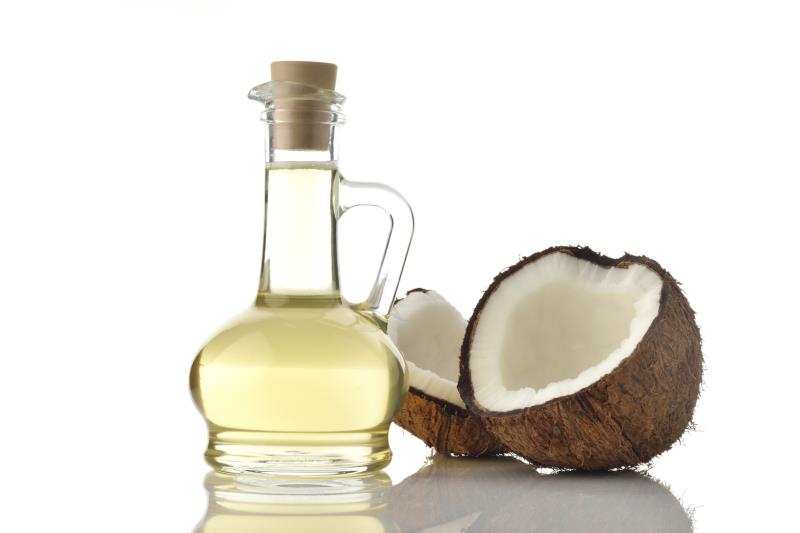 Coconut oil has become a trendy health food, but as it is still a saturated oil, caution is probably needed, although coconut meat itself has many health benefits.
Coconut oil has become a trendy health food, but as it is still a saturated oil, caution is probably needed, although coconut meat itself has many health benefits.Coconut oil contributes to a significant increase in low-density lipoprotein (LDL) cholesterol levels compared with palm and other nontropical vegetable oils, according to a study, raising concerns about the consumption of such type of oil.
“While coconut oil intake also increased high-density lipoprotein (HDL) cholesterol concentrations, efforts to reduce cardiovascular disease (CVD) risk by increasing HDL cholesterol have been unsuccessful. There was also no evidence of benefits of [that particular oil] over nontropical vegetable oils for adiposity or glycaemic and inflammatory markers,” the authors noted.
“Therefore, coconut oil should not be viewed as healthy oil for CVD risk reduction, and limiting [its] consumption because of its high saturated fat content is warranted,” they added.
The authors conducted a systematic review and meta-analysis of 16 articles (including 17 trials involving 730 participants) that compared the effects of ≥2 weeks consumption of coconut oil vs other fats. All trials reported effects on blood lipids, eight trials on body weight, five trials on percentage body fat, four trials on waist circumference, four trials on fasting plasma glucose, and five trials on C-reactive protein.
Pooled data showed that compared with nontropical vegetable oils, coconut oil intake significantly increased LDL cholesterol by 10.47 mg/dL (95 percent confidence [CI], 3.01–17.94; I2, 84 percent; n=16) as well as HDL-cholesterol by 4.00 mg/dL (95 percent CI, 2.26–5.73; I2, 72 percent; n=16). These effects persisted in an analysis excluding nonrandomized trials or trials of poor quality (Jadad score <3). [Circulation 2020;doi:10.1161/CIRCULATIONAHA.119.043052]
Relative to palm oil, coconut oil intake likewise resulted in significant elevations in concentration of LDL cholesterol (20.50 mg/dL, 95 percent CI, 5.96–35.04; I2, 67 percent), HDL-cholesterol (2.83 mg/dL, 95 percent CI, 0.21–5.44; I2, 29 percent) and total cholesterol (25.57 mg/dL, 95 percent CI, 7.30–43.84; I2, 79 percent) but not triglycerides (3.99 mg/dL, 95 percent CI, –6.69 to 14.67; I2, 49 percent).
Meanwhile, coconut oil use had neutral effect on markers of glycaemia, inflammation and adiposity in comparison with nontropical vegetable oils.
The included trials were performed in the US (n=7), Europe (n=2), Asia (n=6) and Brazil (n=2), and more than half (n=10) were of medium-to-high quality (Jadad score, 3–4). Most participants had normal cholesterol levels. Nontropical vegetable oils commonly used as comparison included soybean, olive, safflower and canola oil.
In terms of the method of oil provision, 10 trials provided meals or cooked foods, five trials only provided the cooking oils for use at home, and two trials provided coconut oil in a capsule format. The estimated amount of cooking oil intake across trials ranged from 2 percent to 25 percent of total energy.
“The hypercholesterolemic effect of coconut oil intake is probably attributable to its high saturated fat content,” according to the authors. [Am J Clin Nutr 2003;77:1146-155]
They wrote: “In a recent meta-regression analysis, lauric acid, myristic acid and palmitic acid, which together constitute about 70 percent of coconut oil, all increased LDL cholesterol significantly compared with carbohydrate intake. The 10.47-mg/dL increase in LDL cholesterol resulting from the replacement of nontropical vegetable oils with coconut oil may translate to a 6-percent increase in risk of major vascular events and a 5.4-percent increase in the risk of coronary heart disease mortality.” [J Am Coll Nutr 2019;38:97-107; JAMA 2016;316:1289-1297; Lancet 2010;376:1670-1681]
In an accompanying editorial, Dr Frank Sacks from the Harvard T.H. Chan School of Public Health, in Boston, Massachusetts, US, echoed the authors’ sentiment, saying that “coconut oil may be viewed as one of the most deleterious cooking oils that increases risk for CVD. Even in comparison with palm oil, another tropical oil with high saturated fat content, coconut oil increased LDL cholesterol.” [Circulation 2020;doi:10.1161/CIRCULATIONAHA.119.044687]
Sacks believe that a health benefit can be reaped from using nontropical unsaturated vegetable oils, especially those rich in polyunsaturated fat, as a replacement for coconut oil. He added that nutrition recommendations may be developed and USDA dietary guidelines be modified based on the findings from the current meta-analysis.
“In culinary practice, coconut oil should not be used as a regular cooking oil although it can be used sparingly for flavor or texture,” he wrote.